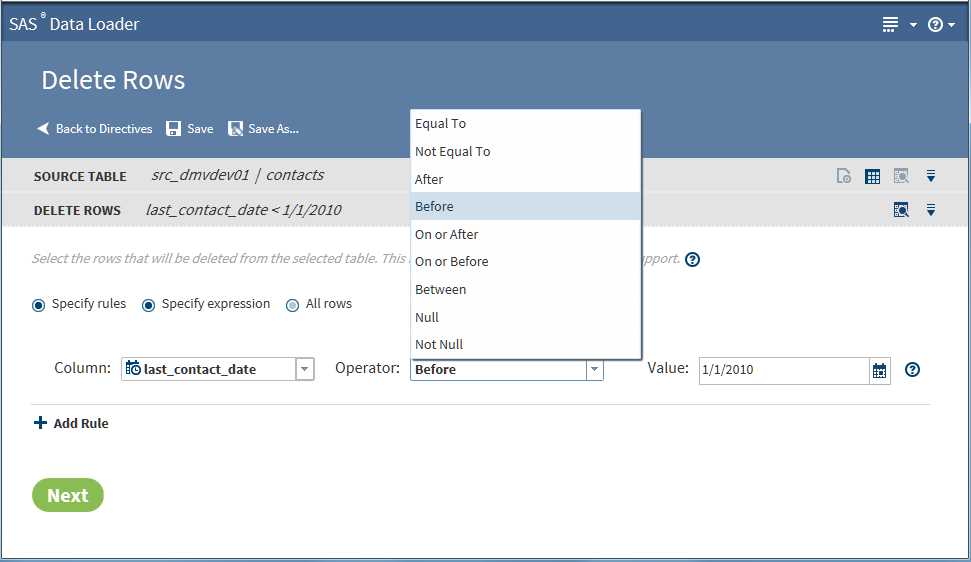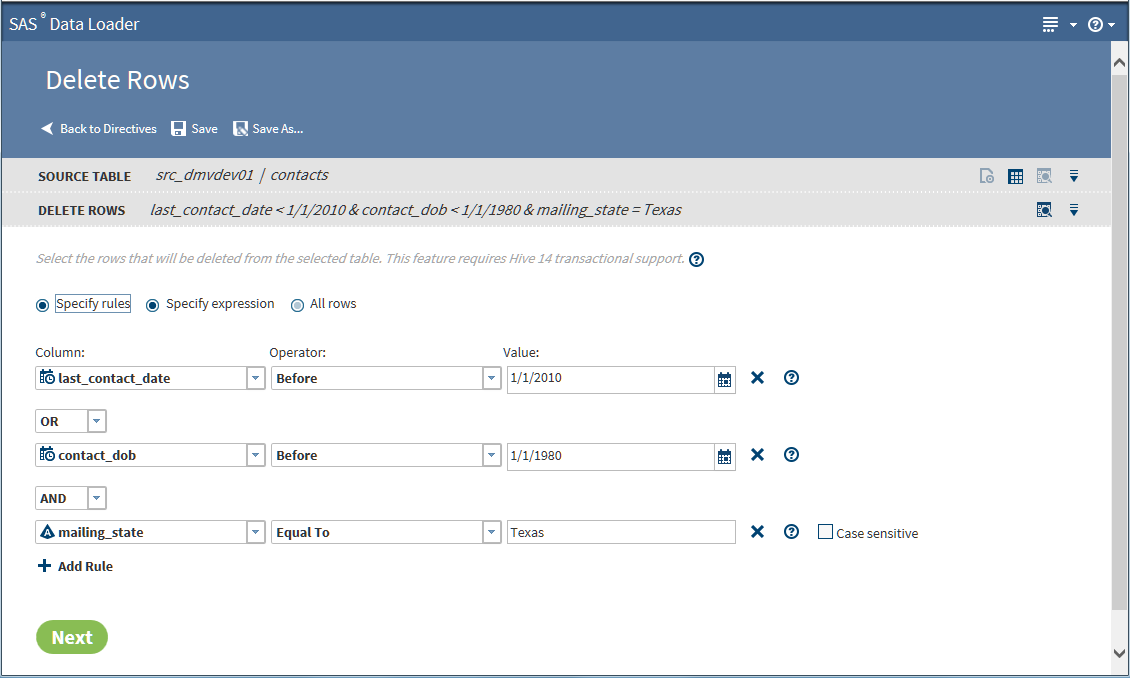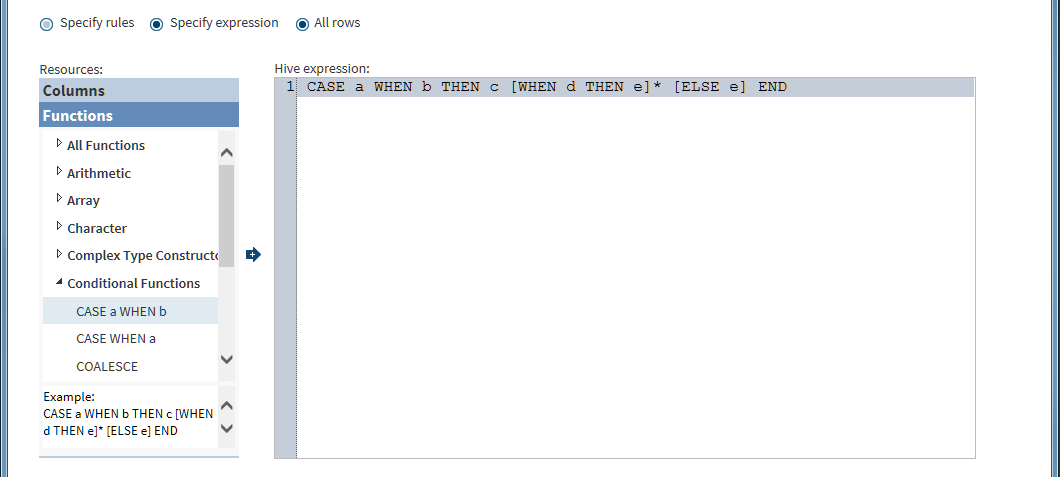Delete Rows
Prerequisites
The prerequisites for
the Delete Rows directive are defined as follows:
-
The Hadoop cluster needs to be configured with release 0.14 or later of the Apache Hive data warehouse software. This release supports transactional tables.
-
Source tables must use a Hive file format, preferably ORC (Optimized Row Columnar.)
-
Source tables must be bucketed and partitioned. Bucketing clusters data based on the values in a specified (key) column. Partitioning creates individually accessible subsets of data based on the values in one or more source columns. To determine whether a source table has been bucketed and partitioned, contact your Hadoop administrator.
Example
Follow these steps to
use the Delete Rows directive:
-
-
To delete rows using a Hive expression, click Specify expression and go to Step 5. Rows are deleted when the Hive expression returns true.
-
-
Copyright © SAS Institute Inc. All rights reserved.



